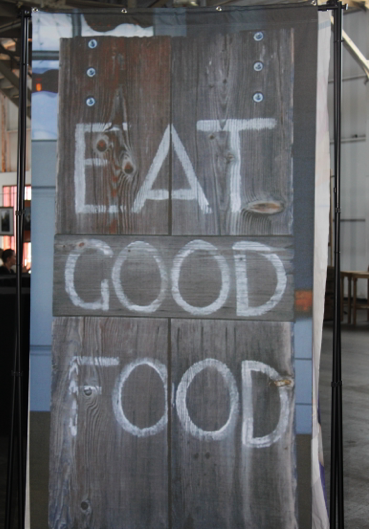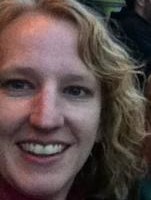
I’ve been struggling with food lately.
More specifically, I’ve been struggling with food choices. As a long-time allergy sufferer, I’ve been on the quest for a way to manage my allergies without the aid of any pills. I’ve been on prescription or non-prescription drugs for years—up until the last six months.
While some of them helped, most often, I found the side effects to be just as uncomfortable as my allergy symptoms. I regularly had a bloody nose. I felt weak and fatigued. My nose was constantly irritated. It seemed I was trading one symptom for another.
I knew there had to be a better way.
So I started making changes to my environment. I bought an expensive vacuum to clear the allergens from my home. I clean religiously. I don’t use any products with fragrances. I use a Neti pot and follow up with Nasya twice a day. I use a humidifier. I began seeing an Ayurvedic doctor almost a year ago. Before that I began gradually eliminating things from my diet in hopes of stopping my body’s reactions before they got started.
But what started out as a journey toward health turned into an unhealthy fixation.
I started with gluten, the “gateway” allergen. From there, I spiraled into countless experiments—no sugar, no caffeine, nothing processed, nothing dry and airy (chips, popcorn), low carb, high fat.
But after my most recent appointment with the Ayurvedic doctor, I left the office feeling anxious. I had just spent $400, had a bag full of supplements and had been told to eliminate another food group from my diet. My stomach was tight and knotted.
Are there really this many things wrong with me? And if there are, is it true that I can only heal them by being 100 percent clean, and 100 percent good, 100 percent of the time?
Over the course of the next few days I talked it through with my trusted posse. I realized that every time I left that doctor’s office I felt the same way—anxious, worried, stressed. My stomach was clenched, my shoulders were tight. I was panicked and worried about the money I just spent.
I realized how tired I am of thinking about food all of the time. I agonize over every meal and substance that enters my body. I can fight with myself for over 30 minutes about whether to eat a piece of bread or cake. If I do have said bread or cake, I beat myself up for the rest of the day and guzzle water in hopes of flushing it out. I spend an inordinate amount of time planning and preparing meals based on what ingredients they don’t have. I almost always know what my next meal will be.
It’s a unique form of control. Though I don’t starve myself, or purge after eating, in my quest to create the cleanest body I can, I’ve created another kind of imbalance.
And I don’t think I’m alone.
Incessant worry about what we eat creates its own kind of disorder. Devoting excessive energy to any one thing doesn’t help our bodies or minds function optimally. It doesn’t matter how perfect or “clean” our diets are—if our thoughts are toxic, we might as well be eating a bucket of KFC for dinner every night.
In many ways this is a product of our society. From beauty magazines to countless, contradictory health studies we are constantly bombarded by messages of what we should or shouldn’t be eating.
While many are counting calories and fat grams, some of us are avoiding certain food groups. We’re eating only raw foods or nothing white. In essence, our relationship to food has become one of “good” vs. “bad” depending on our own definitions of each.
The problem with these judgments is that when we then ingest food from either of the categories, we are also making ourselves “good” or “bad.”
Or at least that’s what I’ve been doing. My self-worth and ability to love myself have been based on what I did or didn’t eat on any given day. If I found myself at a party or dinner where the only thing available to me was “bad” food, I was unable to enjoy said party or food because I envisioned it destroying the perfect, clean inside I had worked so tirelessly to cultivate.
Is this an eating disorder? I’m not sure.
I do know that my relationship with food, in the form described, takes a lot of joy out of my life.
One of my trusted friends recently told me that eating healthy is supposed to be fun. It’s supposed to feel good. There’s that word again. But she’s right. Like most things in life, eating is supposed to be joyful. It’s supposed to feel nourishing. It’s supposed to fuel us and power us to be the bright shiny beings we are. We weren’t created to struggle. Contrary to how we’ve been brought up, we don’t need pain in order to gain.
In the most recent issue of Shambhala Sun there is an article about Pema Chodron discussing transformation. In it it says this:
“It is a process of getting smarter about what helps and what hurts; what de-escalates suffering and what escalates it; what increases happiness what obscures it. It is about loving yourself so much that you don’t want to make yourself suffer anymore.”
I took this message to heart, and have begun applying it to my food struggle.
When I’m making food choices now, I’m not focusing on whether something is “good” or “bad,” but on whether it helps or hurts. What this means might be different for everyone. For me, what helps is what keeps me connected to Spirit, what leaves me feeling light and clear. What hurts is what dulls my sparkle—anything that makes me feel sluggish, tired and weak; anything that causes me to feel congested the following day.
In switching the focus to the subtle messages of my body, I’m able to see the act of eating from a standpoint of self-love.
If we truly love and care for ourselves, then we care about how we treat the vehicles in which we reside. And if we do that, then we naturally gravitate toward fresh, whole ingredients and away from processed anything.
If we take our cues from our bodies, and pay attention when they talk to us, we realize that we really don’t feel so amazing after that bucket of KFC, or that piece of cake. We notice that our lunch makes us crave a nap at 2:00 p.m. or that the glass of wine with dinner is causing us to veg in front of the TV instead of working on that creative project.
This doesn’t mean we will never eat cake again, or that we will always pack only healthy lunches. It just means that we are paying attention. We are noticing what helps and what hurts. In this noticing we are sometimes able to make different choices the next time.
Whether your goal is weight loss, better health or if you just want to feel better, the most important thing (in any situation) is joy.
If counting calories or religiously avoiding flour is making you unhappy, then stop. Pay attention to what your body says. Doing this is a more gentle way of living. We don’t need rigid, strict rules around our diets. We only need to discover what really fills us up. And that’s the ultimate act of self-love.
Love elephant and want to go steady?
Sign up for our (curated) daily and weekly newsletters!
Editor: Catherine Monkman






Read 0 comments and reply